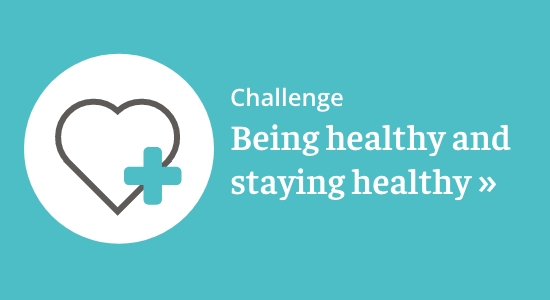
Recognition of post-COVID syndrome contributes to recovery
Patients suffering from post-COVID syndrome generally feel supported by their general practitioners; they take their complaints seriously and actively collaborate on finding solutions. General practitioners indicated that by entitling the disease as ‘post-COVID syndrome’, they gave patients guidance on coping with the symptoms. Both patients and general practitioners emphasize the importance of recognition and understanding when dealing with the ‘elusive’ post-COVID syndrome. At the same time, other patients feel stigmatized by healthcare providers and by those who are not close to them. Some patients feel that their general practitioner doubts the existence of post-COVID syndrome, leaving them with the feeling that their symptoms are not being acknowledged. These are the main findings of a qualitative study by Nivel, based on interviews conducted in 2022 with thirteen patients suffering from post-COVID syndrome and six general practitioners.
In 2022, we asked a group of patients with post-COVID syndrome about their experiences in living with post-COVID syndrome and the care they receive. We also talked to general practitioners about their experiences providing care to these patients and their perspectives on the impact of post-COVID syndrome on their patients’ daily lives.
Diverse experiences of different patients with the post-COVID syndrome
The interviews revealed roughly two groups of post-COVID syndrome patients: individuals with a good pre-existing health status who are severely affected by post-COVID syndrome and have difficulty recovering (5 patients in our study), and individuals with a poorer pre-existing health status whose health became even poorer after COVID-19 infection (8 patients in our study).
Patients with a poorer pre-existing health status mentioned their pre-existing conditions – such as chronic lymphocytic leukemia, Crohn's disease and asthma – as possible explanation for their persistent complaints. Patients with a good pre-existing health status often had no clear explanation for their persistent complaints. Some patients with a poorer pre-existing health status felt that the advice from healthcare providers did not align with their own needs and ideas; while healthcare providers recommended rest, they preferred a more active approach. This mismatch led to feelings of misunderstanding and also to insufficient recovery. One patient even mentioned that, by increasing the intensity of physical therapy, her symptoms worsened. However, according to some patients their healthcare providers provided sufficient advice, such as not crossing limits and building up physical condition slowly.
Awareness of the needs of post-COVID syndrome patients can lead to better care
There appears to be a difference in the need for support between the two groups of post-COVID syndrome patients. According to the general practitioners, people with a good pre-existing health status require support in distributing their energy by planning their daily activities, whereas the group with a poorer pre-existing health status require support in activation and a focus on care and support for their pre-existing conditions. When general practitioners are aware of the differences in needs and experiences of the two types of post-COVID syndrome patients, it could lead to more appropriate care.
About the study
The study was funded by The Netherlands Organisation For Health Research and Development (ZonMw). Nivel conducted interviews with 13 patients with the post-COVID syndrome and 6 general practitioners. The interviews took place between January and July 2022. The scientific article on this study has been published in BMC Primary Care.



